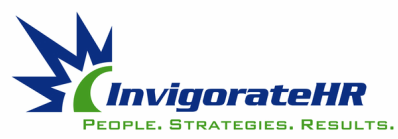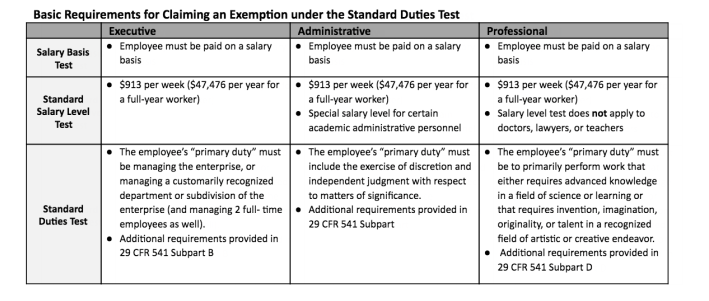|
Last year the Department of Labor (DOL) announced proposed changes to the Fair Labor Standards Act (FLSA), the law which outlines overtime exemptions for workers. These proposed changes extended overtime protections to nearly five million workers making many positons previously considered overtime exempt under the act, nonexempt and eligible for overtime. After 10 months of review, the final rule was published May 18, 2016. Overview The final rule focuses on updating the salary and compensation levels needed for Executive, Administrative and Professional workers to be exempt. Specifically, the rule:
Employers have until December 1, 2016 to comply with the final rule. This means that in order to be exempt from overtime, employees must make a minimum salary of $47,476 and satisfy the duties test outlined by the DOL for exemption from overtime (see table below). Employees who do not meet this criteria must be classified as nonexempt and paid overtime for any hours worked over 40 hours per week. Special Note for Nonprofits
Nonprofit organizations have been identified as an industry most significantly impacted by these changes given their limited budgets and other financial factors. The DOL recognized this and published a special overview and guidance for nonprofit organizations outlining how the FLSA applies to nonprofits through:
While some nonprofits may not be covered under the FLSA, it is likely that many employees of non-profits are entitled to FLSA protections. The DOL’s guidance document also outlines several options for nonprofits on how to address these changes. These options include:
Compliance To meet the December 1, 2016 compliance deadline, organizations will need to craft a compliance strategy and review internal practices. Currently, InvigorateHR is working with its clients to:
Navigating through these changes can be challenging and even overwhelming. Therefore, it is recommended that you secure an HR partner that can assist in working through these changes. Utilize the right expertise to keep you compliant and to avoid legal action. Written by Jeremy York jeremy@invigoratehr.com Comments are closed.
|
Archives
December 2024
|


 RSS Feed
RSS Feed